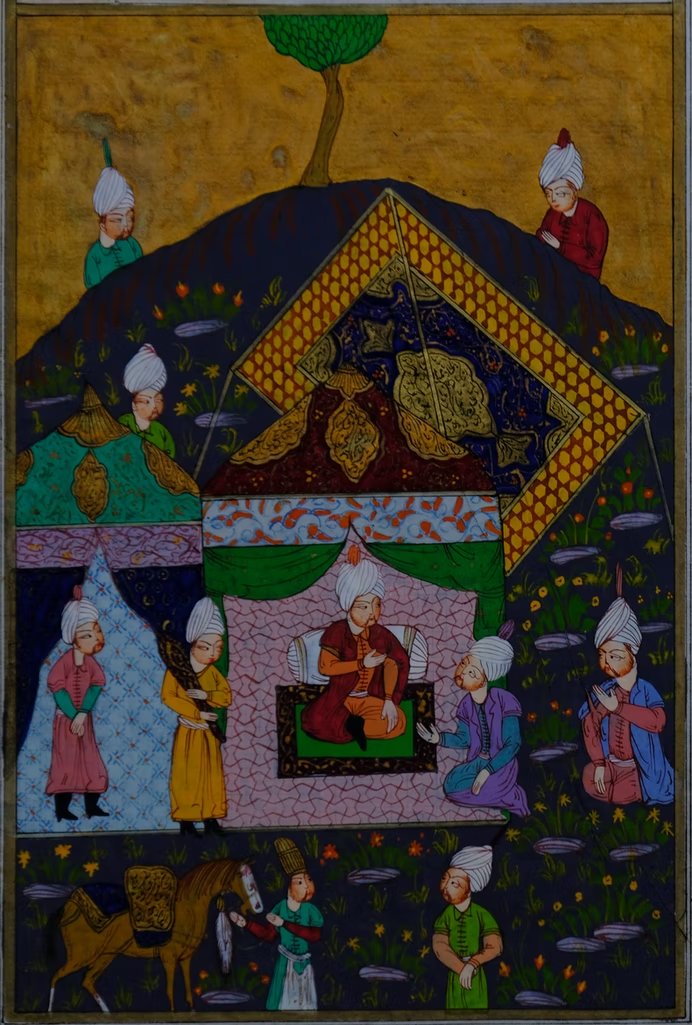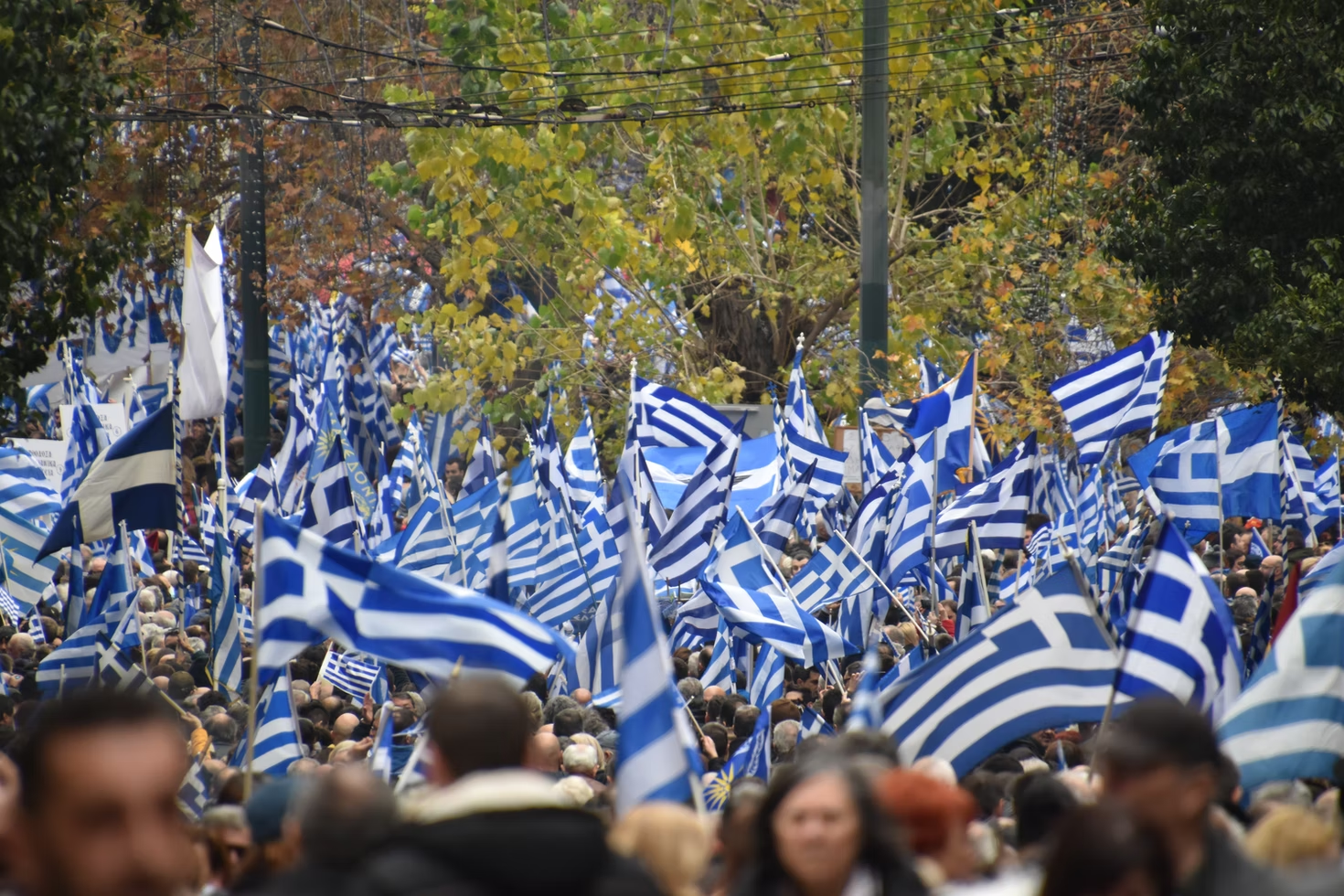The Heraklion Massacre And Its Implications For Greek Independence History
Greek Independence- The slaughter of Christians at Canea-Chania, as well as the Ottoman government's refusal to enact reforms in Crete, prompted a Cretan revolt in January 1897, which sought union with Greece. Uprisings had previously failed in 1841, 1858, 1866, 1889, and 1895.
In this article, we are going to talk about one of the saddest chapters in modern Greece history. The Massacre of Hereklion was an important point in greek nationalism in the XIX Century.
We are going to study about the greek independency movement and the Massacre of Heraklion that ended the Ottoman rule in Crete finishing the unification process.
Ottoman Rule In Crete
Since its conquest of the Byzantine Empire in the 14th and 15th centuries, the Ottoman Empire had dominated practically all of Greece, with the exception of the Ionian Islands.
However, as revolutionary nationalism spread across Europe and the Ottoman Empire's strength waned, greek nationalism began to express itself and garnered support from Western European "philhellenes" in the 18th and 19th centuries.
It's crucial to remember that the Greek Revolution was not a unique incident; throughout the Ottoman domination of Greece, there were countless failed efforts at reclaiming freedom.
In the Peloponnesos, for example, an effort was made in 1603 to revive the Byzantine Empire, and throughout the 17th century, there was fierce opposition against the Turks. The Orlov Revolt of 1770 is perhaps the most renowned of them.
The Peloponnese's Mani Peninsula also stood firm against Turkish authority, repelling multiple Turkish expeditions, the most notable of which was the Ottoman Invasion of Mani (1780).
The Greek Independence Movement
It's crucial to remember that the Greek Revolution was not a unique incident; throughout the Ottoman domination of Greece, there were countless failed efforts at reclaiming freedom.
In the Peloponnesos, for example, an effort was made in 1603 to revive the Byzantine Empire, and throughout the 17th century, there was fierce opposition against the Turks.
The Orlov Revolt of 1770 is perhaps the most renowned of them. The Peloponnese's Mani Peninsula also stood firm against Turkish authority, repelling multiple Turkish expeditions, the most notable of which was the Ottoman Invasion of Mani (1780).
A strong nautical heritage in the Aegean islands, along with the creation of a prominent merchant elite in the 18th century, supplied the resources needed to establish schools and libraries, as well as pay for young Greeks to study in Western European colleges.
They encountered radical ideas from the European Enlightenment and the French Revolution here.
In 1814, inspired by Rigas' sacrifice, three young Greeks created the Filiki Eteria, a secret "Friendly Society" that lay the organizational framework for the insurrection.
Odessa, a major center of the Greek mercantile diaspora, was the birthplace of the organization.
The triumph of the Greeks signaled the start of the Ottoman Empire's slow disintegration.
Furthermore, other Balkan peoples were expected to follow Greece's lead in seeking independence from Ottoman authority.
What Happened During The Massacre Of Heraklion?
On August 25, 1897, British forces were escorting a Christian officer designated to handle the customs office in Heraklion up the street from the harbor when they were assaulted by a crowd of Turkish extremists.
Following that, Muslim insurgents massacred additional local Christians in the city. As a result, 14 British soldiers were slain, the British vice-consul and his family were burned alive in their home, and around 800 Christians were slaughtered.
Following the massacre, the Turks pillaged stores and set fire to Christian homes.
What Was The Greek Response?
The Greek government responded by sending troops and the navy to Crete, angering the main European nations.
Its purpose was to restore peace and order and "not to leave the Cretan people at the mercy of Mussulman fanaticism and the Turkish army" they said.
European Intervention
The European powers (Britain, France, Germany, Russia, Austria, and Italy) despatched an international naval squadron to safeguard Canea (Chania) on Crete.
The countries were opposed to Greece's annexation of Crete and demanded that Greece evacuate its soldiers and naval forces. The powers also did not want a European conflict over Crete.
The powers granted the Admirals permission to grant Cretan autonomy on March 17, 1897, with the caveat that "it should not go into any detail as to the constitution to be granted to them, but simply state that as regards their internal affairs they will be entirely free from the control of the Porte."
The Admirals Council arose from this, essentially making them the power brokers.
The Admirals Council split the island into five sectors to carry out their plans, with each power in charge of a section.
The Austrians, for example, dispatched 300 troops to Kastelli, Kissanos, and Selino; 300 Germans to Suda; and 300 Russians to Rethymno; 500 British troops to Candia (Heraklion); 300 French to Sitia and Spinalongou; and 300 Italians to Ierapetra.
In November 1897 and March 1898, the Germans and Austrians withdrew their soldiers since the former had moved closer to the Ottoman empire.
The European powers agreed on May 25, 1898, to the creation of an executive committee appointed by the Cretan Assembly.
Eleftherios Venizelos, Ioannis Zacharakis, Ioannis Sfakianakis, Emmanouil Mylogiannakis, Nikolaos Giamalakis, and Antonis Hatzidakis served on the committee. It was to be of a temporary nature, in touch with the Admirals, and susceptible to removal by the Admirals if it overstepped its jurisdiction.
The committee handled area under the Cretan Assembly's jurisdiction, while the Admirals had direct responsibility over territories held by European forces.
The Admirals examined the question of funding the administration of Crete, which required the agreement of the authorities.
Customs Houses placed under British administration were to collect a 3% levy on exports. The replacement of Muslim leaders with Christians enraged the former.
The establishment of an International Syndicate of Bankers of the four nations, who would provide the required advances, and as a security would be entitled to collect the entire or part of the 3 percent Customs surtax," the French, British, Russian, and Italian governments contemplated.
The Admirals were given authority to carry out this step by the authorities.
Greek Victory And The End Of The Ottoman Rule
The Muslim perpetrators were condemned to death by an International Military Commission in Candia for the murder of the British VC (Lysimachos Calokerinos) and others for violent riots. On November 5, 1898, the Admirals' Council approved the punishments.
The last Ottoman forces left Crete permanently, setting the way for the entry of Prince George of Greece as Governor-General and the start of the process that would lead to the island's unification with Greece in 1913. Almost 400 years of Ottoman rule have come to an end.
People Ask
Why Is March 25 Greek Independence Day?
The 25th of March is notable because it marks the start of the Greek War of Independence, as announced by the rebels and freedom fighters. The Filiki Eteria, a secret organization, was founded in 1814 with the objective of freeing Greece from Ottoman rule.
When Did Greece Get Their Independence?
Within a year, the rebels had taken control of the Peloponnese and declared Greece's independence in January 1822.
Also n 1913 the total unification of Greece was achieved with the recovery of the crete islands.
How Long Did Ottomans Rule Greece?
The fact that Greek culture was preserved during the Ottoman Empire's 400-year reign over what is now Greece is a monument to the Ottoman Empire's famous tolerance for the various peoples it governed, not to the persistence of Greek civilization.
Conclusion
In the next century, Greece becomes a major player in European history, while the Ottoman Empire fades away and is replaced by the Turkish Republic a few years after World War I.
Greece likewise conquered Ottoman lands in the Balkans, and the two nations are now political competitors, while being significant US allies.
These nations are fighting the Cyprus conflict, as well as several other Mediterranean conflicts.
Did you know any of this passionate history during the Independence of Greece? Do you know anything about the current relations between Turkey and Greece? Let us know in the comment section.



